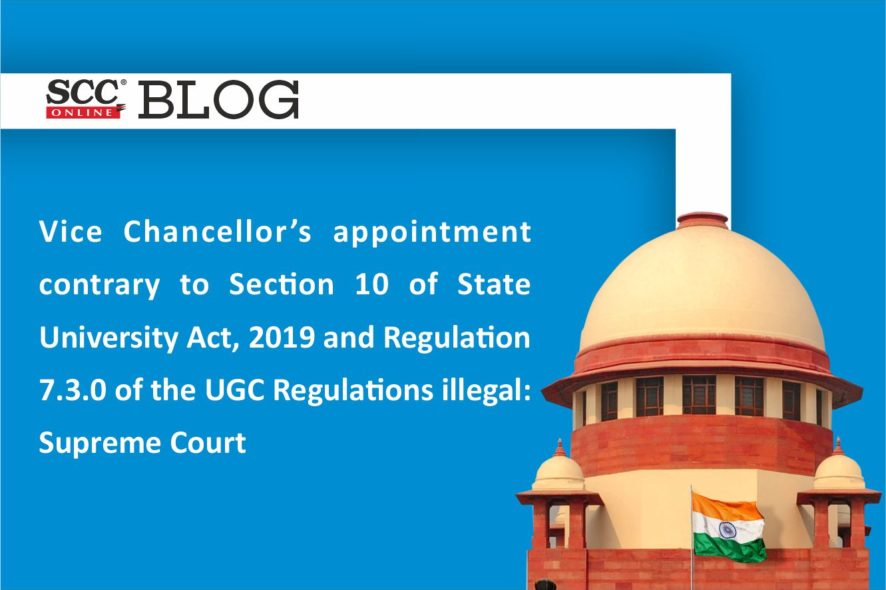Supreme Court: In an appeal against the judgment passed by the Uttaranchal High Court, wherein the Court has set aside the appointment of the appellant as a Vice Chancellor (‘VC’), the division bench of M.R. Shah* and M.M. Sundresh, JJ. has upheld the decision of the High Court, as the appointment of the appellant as VC of the University is contrary to Section 10 of the University Act, 2019 read with Regulation 7.3.0 of the University Grants Commission Regulations, 2018 (‘UGC Regulations, 2018’), which has been specifically adopted by the State Government.
In the case at hand, the appellant was appointed as Professor and worked for the period between 23.5.2009 to 7.10.2017, till he was appointed as member of the Uttarakhand Public Service Commission. Thereafter, he was appointed by the State Government as Vice chancellor (‘VC’) of the University, which was challenged before the High Court on the ground that at the time when he was appointed as VC, he was not having the requisite experience of minimum 10 years as Professor, which was required as per the UGC Regulations, 2018.
The issue in the present appeal is whether the appointment of the appellant as VC of the University was legal and valid and whether it was after following the due procedure, as required?
The Court referred to Section 10 of the State University Act, 2019 and Regulation 7.3.0. of the UGC Regulations, 2018, and said that, on a conjoint reading of the above stated provisions, a person to be appointed as VC shall have a minimum of 10 years’ teaching experience as Professor in a University or ten years of experience in reputed research and/or academic administrative organisation with proof of having demonstrated academic leadership. Further,the selection for the post of VC should be through proper identification by a panel of 3-5 persons by a search-cum-selection committee and the VCs shall be appointed out of the panel of the names recommended by the said committee.
The Court observed that the selection of the appellant for the post of VC was not out of the panel of the names recommended by search-cum-selection committee.
Moreover, on the contention of the appellant that in case of appointment of first VC consideration of Section 10(1) of the University Act, 2019 is not required and it is open for the State Government to appoint the first VC of the University, the Court said that proviso to Section 10(1) of the University Act, 2019, does not provide that with respect to appointment of first VC of the University, the other requirements of selection and appointment of VC as provided under Section 10 are not required to be followed.
The Court also rejected the contention of the appellant that the period spent by him from 7.10.2017 to 13.08.2020 as a member of the Public Service Commission should be added to his teaching experience . Further, supervising the Ph.D. scholars cannot be said to have teaching experience as a Professor in the University.
Thus, the Court upheld the judgment of the High Court as the appellant did not have the required minimum 10 years’ teaching experience as a Professor in the University, which is the requirement under the UGC Regulations, 2018, and before appointing him as a VC, neither any advertisement was issued, nor the names were called for from the eligible meritorious candidates, nor his name was recommended by the search-cum-selection committee, nor there was any such search committee.
Further, the Court referred to the note sheet dated 05-08-2020 and said that it appears that only one name was placed before the State Government for approval. Thus, the appointment of the appellant as VC of the University was held to be illegal and de hors the statutory requirements under Section 10 of the University Act, 2019 read with Regulation 7.3.0 of the UGC Regulations, 2018.
[Narendra Singh Bhandari v. Ravindra Jugran, 2022 SCC OnLine SC 1555 decided on 10-11-2022]
*Judgment by: Justice M.R. Shah.
*Apoorva Goel, Editorial Assistant has reported this brief.







